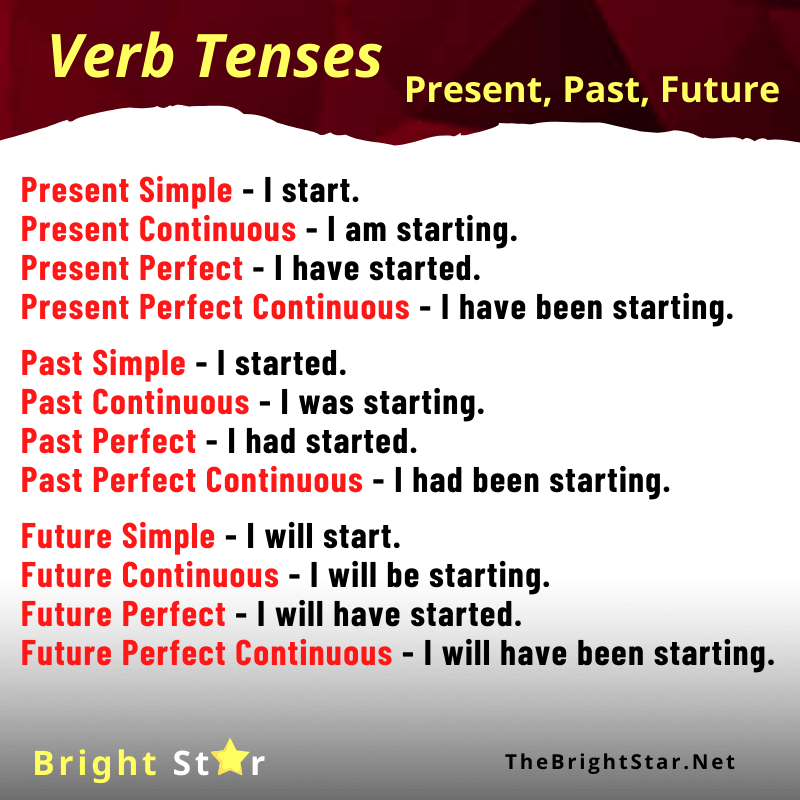Most of the students are facing difficulty in the usage of tenses. we have some examples below to get you through these misconceptions and you will never get confused again.
Verbs come in three tenses: past, present, and future. The past is used to describe things that have already happened (for example, earlier in the day, last week, three years ago). The present tense is used to describe things that are happening right now or continuous things. The future tense describes things that have yet to happen (for example, later, tomorrow, next week, next year).
The following examples show the proper use of verb tenses:
Present Tense
Example -1
Simple Present: I read nearly every day.
Present Continuous: I am reading Shakespeare at the moment.
Present Perfect: I have read so many books I can’t keep count.
Present Perfect Continuous: I have been reading since I was four years old.
Example -2
Present simple: I start.
Present Continuous: I am starting.
Present Perfect: I have started.
Present Perfect Continuous: I have been starting.
Past Tense
Example -1
Simple Past: Last night, I read an entire novel.
Past Continuous: I was reading Edgar Allan Poe last night.
Past Perfect: I had read at least 100 books by the time I was twelve.
Past Perfect Continuous: I had been reading for at least a year before my sister learned to read.
Example -2
Past Simple – I started.
Past Continuous – I was starting.
Past Perfect – I had started.
Past Perfect Continuous – I had been starting.
Future Tense
Example -1
Simple Future: I will read as much as I can this year.
Future Continuous: I will be reading Nathaniel Hawthorne soon.
Future Perfect: I will have read at least 500 books by the end of the year.
Future Perfect Continuous: I will have been reading for at least two hours before dinner tonight.
Example -2
Future Simple – I will start.
Future Continuous – I will be starting.
Future Perfect – I will have started.
Future Perfect Continuous – I will have been starting.
More Languages
No post found!
More from Bright Star

